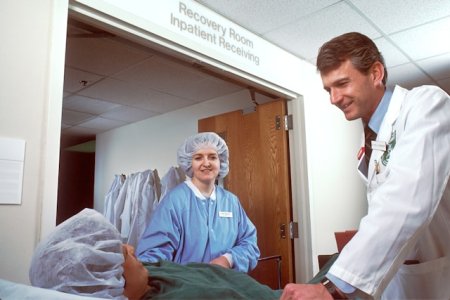Doctor warns about ‘troubling truth’ lurking in popular health campaigns—are you being misled?
By
Seia Ibanez
- Replies 4
In today's health-conscious society, Australians are constantly inundated with messages encouraging us to stay vigilant about our well-being.
But what if there's more to these messages than meets the eye?
A recent study has shed light on a 'troubling truth' that demands everyone’s attention: the hidden influence of corporate interests in health campaigns.
The study scrutinised 107 health campaigns endorsed by prestigious organisations such as the World Health Organisation and the US Government.
The study was also in collaboration with Minna Johansson (Global Centre for Sustainable Healthcare, Sweden), Mary O’Keeffe (University College Dublin, Ireland), Karsten Juhl Jørgensen (University of Southern Denmark) and Steven Woloshin (Dartmouth Institute for Health Policy and Clinical Practice, US).
Dr Loai Albarqouni, an Assistant Professor of Research at Bond University’s Faculty of Health Sciences and Medicine, said that the study found that a staggering 73 per cent had some form of commercial involvement.
‘These companies frequently fund the campaigns or provide other support, ensuring their products or services are prominently featured,’ Dr Loai said.
‘These health awareness campaigns are designed by interest groups to highlight the existence, detection and treatment of diseases or risk factors, but offered little or no incentive to have a vaccine or see a medico.’
The concern here is not just about the presence of corporate sponsorship, but the lack of transparency that accompanies it.
Only 37 per cent of these campaigns clearly disclosed their corporate ties on their main pages. The rest either buried this crucial information in hard-to-find sub-pages or didn't disclose it at all.
For example, a breast cancer awareness campaign might heavily promote mammograms and specific treatments that are profitable for certain companies while glossing over the risks or alternative approaches.
A diabetes awareness campaign might promote specific medications or devices without weighing lifestyle changes or other non-commercial treatments equally.
These campaigns are often officially recognised and promoted by government and public health institutions, lending them an air of credibility that may not be fully deserved.
They aim to influence public knowledge and behaviour but often provide little information on the potential for overdiagnosis or overtreatment.
Dr Loai emphasised the need for balanced messaging in health campaigns.
‘The proportion of commercial involvement was mentioned with similar frequency across recognising organisations,’ he said.
‘We believe if campaigns intend to inform the public rather than promote products, they should strive for balanced messaging that quantifies both benefits and harms and allows comparison.’
‘This, and disclosing commercial involvement, should improve consumer decision-making.’
 Have you ever felt pressured by a health campaign to make a decision that didn't feel quite right? Share your experiences in the comments below.
Have you ever felt pressured by a health campaign to make a decision that didn't feel quite right? Share your experiences in the comments below.
But what if there's more to these messages than meets the eye?
A recent study has shed light on a 'troubling truth' that demands everyone’s attention: the hidden influence of corporate interests in health campaigns.
The study scrutinised 107 health campaigns endorsed by prestigious organisations such as the World Health Organisation and the US Government.
The study was also in collaboration with Minna Johansson (Global Centre for Sustainable Healthcare, Sweden), Mary O’Keeffe (University College Dublin, Ireland), Karsten Juhl Jørgensen (University of Southern Denmark) and Steven Woloshin (Dartmouth Institute for Health Policy and Clinical Practice, US).
Dr Loai Albarqouni, an Assistant Professor of Research at Bond University’s Faculty of Health Sciences and Medicine, said that the study found that a staggering 73 per cent had some form of commercial involvement.
‘These companies frequently fund the campaigns or provide other support, ensuring their products or services are prominently featured,’ Dr Loai said.
‘These health awareness campaigns are designed by interest groups to highlight the existence, detection and treatment of diseases or risk factors, but offered little or no incentive to have a vaccine or see a medico.’
The concern here is not just about the presence of corporate sponsorship, but the lack of transparency that accompanies it.
Only 37 per cent of these campaigns clearly disclosed their corporate ties on their main pages. The rest either buried this crucial information in hard-to-find sub-pages or didn't disclose it at all.
For example, a breast cancer awareness campaign might heavily promote mammograms and specific treatments that are profitable for certain companies while glossing over the risks or alternative approaches.
A diabetes awareness campaign might promote specific medications or devices without weighing lifestyle changes or other non-commercial treatments equally.
These campaigns are often officially recognised and promoted by government and public health institutions, lending them an air of credibility that may not be fully deserved.
They aim to influence public knowledge and behaviour but often provide little information on the potential for overdiagnosis or overtreatment.
Dr Loai emphasised the need for balanced messaging in health campaigns.
‘The proportion of commercial involvement was mentioned with similar frequency across recognising organisations,’ he said.
‘We believe if campaigns intend to inform the public rather than promote products, they should strive for balanced messaging that quantifies both benefits and harms and allows comparison.’
‘This, and disclosing commercial involvement, should improve consumer decision-making.’
Key Takeaways
- Australians are warned to be vigilant about health campaign messages, as a new study highlights a concerning trend of corporate involvement in these campaigns.
- Many health awareness campaigns have hidden corporate ties, with only a minority disclosing this information, potentially leading to biased messaging.
- 73 per cent of the health campaigns studied had some form of commercial involvement, influencing how diseases and treatments are presented to the public.
- Dr Loai Albarqouni, a researcher and assistant professor at Bond University, suggested that campaigns should provide balanced information and disclose any commercial involvement for better consumer decision-making.








